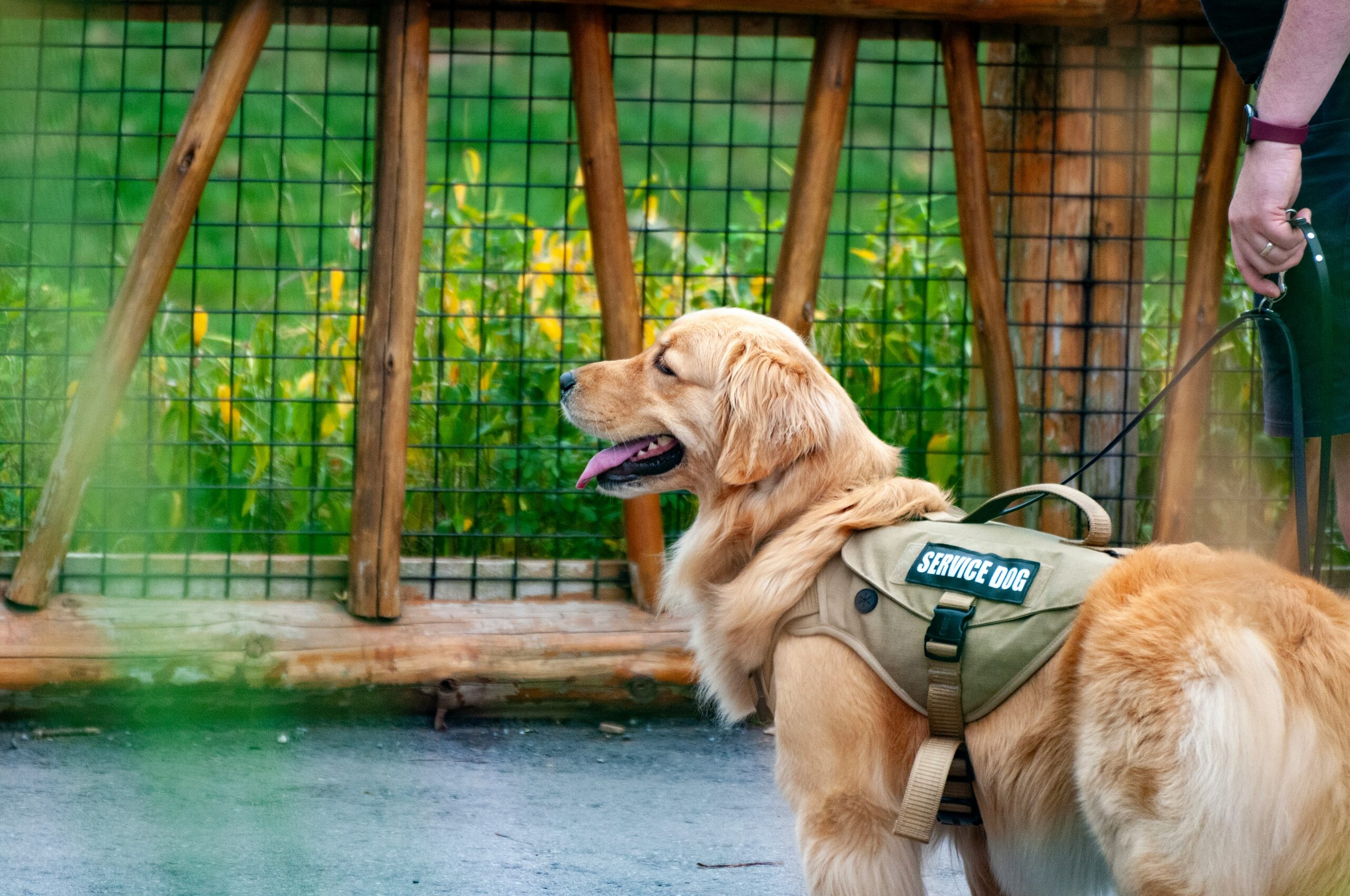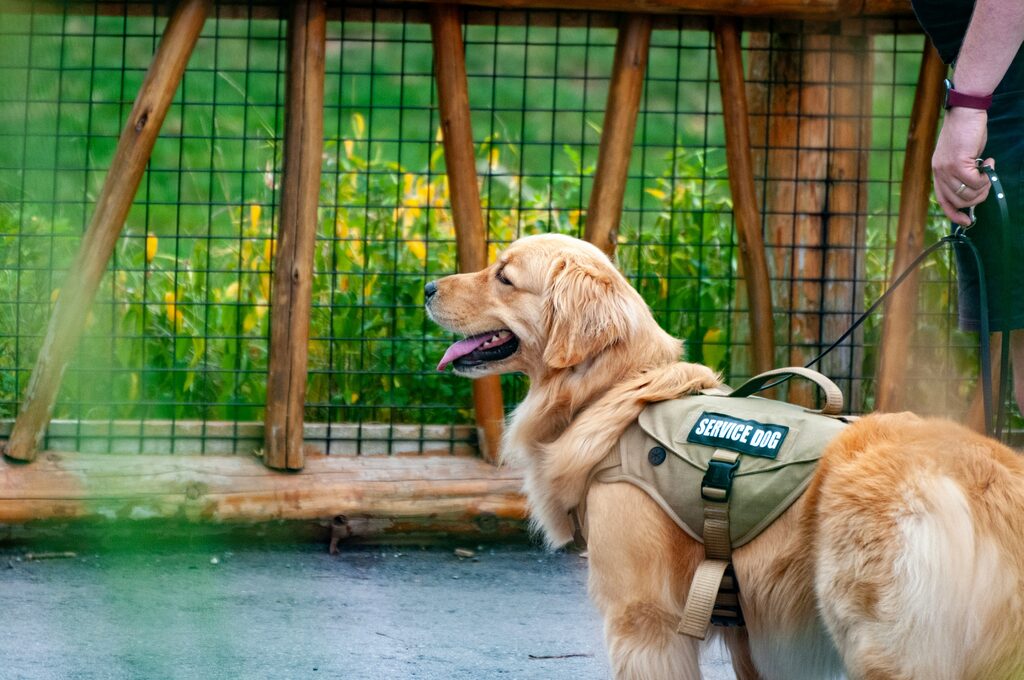
Service Dogs for Veterans
The PTSD Service Dog program is currently closed to new applicants; we are currently accepting applications from our service men and women who have a significant hearing loss.
For other programs offering PTSD or Psychiatric Service Dogs, please visit the website for Assistance Dogs International for a listing of organizations.
We trained service dogs to work with post-9/11 veterans diagnosed with post-traumatic stress disorder (PTSD) and/or a traumatic brain injury (TBI) in connection to their military service. These dogs were trained to help reduce or mitigate some of the symptoms of PTSD, or TBI—such as hyper-vigilance and anxiety, or balance and equilibrium issues—by performing certain tasks and commands, primarily in public spaces.



How we met veterans’ needs
As with our current Hearing Dog program, this program took a meticulous approach to selecting and training service dogs to ensure a perfect fit for qualified veterans. Typically, we chose dogs with friendly and calm temperaments, often leaning towards retrievers or retriever types, who would be around two years old when they graduated from the six-month training program and were matched with their veterans. As a small program, we were able to provide a tailored approach to skills training for each service dog team.

Our PTSD Dogs Program supported veterans with a demonstrated desire for continued improvement of their mental well-being and a commitment to a lifelong partnership with a service dog. Once matched with their veteran, each PTSD Service Dog did more than simply performing tasks—providing companionship, purpose, and an increased sense of independence for their owner, contributing to overall improved mental health outcomes.
What our PTSD Service Dogs did for veterans
- Cover My Front: Dogs were trained to move from a “left side” or heel position to a “front position”, providing a comfortable and friendly perimeter for the veteran.
- Cover My Back: Dogs were taught to turn, sit, and face the opposing direction from the veteran, promoting healthy awareness by reducing stress and/or anxiety.
- Balance: Where balance might be affected by medication used in treatment for PTSD and/or TBI, our dogs were taught to stop and stand still in position when they feel a moderate weight applied to their shoulders and hips. This was for veterans who needed only a slight anchor to regain their balance on stairs and curbs. Veterans with balance challenges were taught how to use their dog properly to regain balance again without applying too much weight on the dog.
- Stand and Brace: Veterans with back and/or knee issues due to their military service sometimes need a little counterbalance to help stand up from a chair or when kneeling on the ground. We trained our dogs to stand and remain in position when slight pressure is applied to a dog’s shoulders and hips simultaneously (i.e., not bearing the owner’s full weight). Our veterans were taught how to properly utilize this skill.